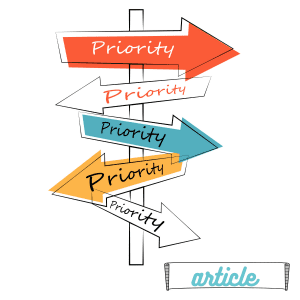
Should I take a break?
Taking a break during dating is often a cop out and will not achieve anything. Most doubts or uncertainties regarding your dating partner are best



Taking a break during dating is often a cop out and will not achieve anything. Most doubts or uncertainties regarding your dating partner are best

What is attachment? Many of us are inclined to form adult relationships that are what psychologists call “poorly attached,” which could cause us to experience

Some people see dating as looking to see if there is full agreement between the parties. The minute they hit upon some area of disagreement,

If you need to disclose sensitive information, it is important that you handle the process in a way that will cause the least damage. While

You’ve been dating someone for a few times. You’ve both shared about yourselves and know quite a bit about each other. And then you determine that this person is not for you, and you want to end the relationship. Remember, this is a vulnerable time for both of you. How you end the relationship should be done with dignity and respect – for both of your sakes.

The purpose of dating is not to confirm automatic full agreement on every topic. There is no reason to feel disappointed the minute there is some area of disagreement. Unless the gap is felt to be truly unbridgeable, these are exactly the issues that should be discussed while on the date in an open and honest manner. Negotiation and compromise are not bad words. They will be your best friend in marriage, and you might as well befriend them during dating.

People are often encouraged to make a list of criteria to guide the search process. Without question, this is necessary and important, because how else can someone know who may be suitable for you.

There are unique situations when a break would be helpful. The first is what we term a Feelings Break, when you find there is strong compatibility but you feel that you don’t have a sufficient emotional connection. A break may allow you to see whether there is a flicker of connection upon which to build. The second we call a Thinking Break, when you have strong feelings towards your dating partner but are facing a major decision and feel that it should not be clouded by the growing emotional bond. If a break is warranted, it must be broached with the utmost sensitivity and maturity.

It would be more advisable to give off a more realistic portrayal of life from the outset, and weave into that the factors that will make your weakness seem less threatening. You can provide context of your life that will make it easy for your date to see how you deal with and manage your issue.

“Attachment” is a fascinating and complex matter, and the consequences are enormous for people’s experience of entering into a relationship and how their fair once married. In fact, the issue of attachment may be the single most central and important factor in the quality and success of people’s relationships.

While therapy is designed to deal with traumas and wounds from the past, coaching is focused on helping someone figure out what to do going forward. If you feel stuck in your dating, you might benefit from working with a coach. If you are struggling with a significant issue, you will benefit from working with a therapist.

Where is the request to continue the dating process coming from? Has overall compatibility been established? What do they say they need clarity on?
Especially important Is to be clear between the two of you as to what kind of clarity is to be gained during the next dates.
Set a goal and a timeframe. Not an ultimatum. Don’t pressure.
Sometimes, people get stuck. It is worthwhile to get professional support in making a decision.

Guilt is a healthy response as a reaction to the past, yet it is a dysfunctional response to our posture for the future. If you have done things you should be ashamed of, not feeling guilt would be a bad thing. But if the guilt is undermining your confidence in your ability to move forward in your life, it is a really bad thing.

More than the exact differences of your religiosity levels is the ‘what’ and ‘who’. What are the differences; are they major or minor? Who are each of you; how flexible are each of you?

There are occasions when people have aspirations or expectations do not hold up to rational analysis because they have conflicting or confused priorities. No one person can possibly meet those conflicting requirements.